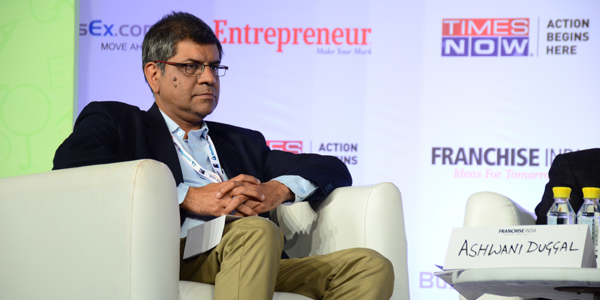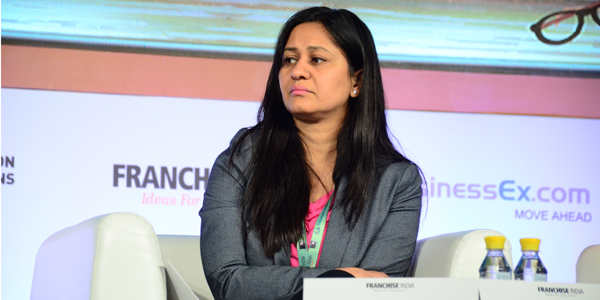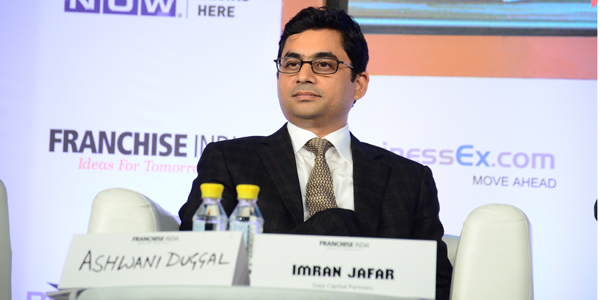Indian Education Congress 2017 talks about the relevance of Education, in India and where Education Investments should be lined up in the coming years?
Often, the Educational Sector is considered to be very different from other industries, as its prime goal is not to turn a financial profit, but instead to educate and impart information to students.
The Education sector in India has witnessed a paradigm shift in recent times. It has since metamorphosed into an industry in its own right. Similarly, some initiatives are also taken up by the Government to encourage investments in the education sector.
 Moderator: Mr. Suchindra Kumar, Mr. Suchindra Kumar, Director- Advisory services, EY India
Moderator: Mr. Suchindra Kumar, Mr. Suchindra Kumar, Director- Advisory services, EY India
In the Education space, it is important to have knowledge of how funds are acquired to set up a business.
In Education, we have regulated and formalised segments like schools, universities, colleges along with unregulated segments like pre schools, Education technology where people begin with small scale investments and dream of making it big, creating opportunities and making an impact which is scalable in the Education sector.

Mr. Ashwin Duggal, Co-founder and CEO, Mappr
Challenges faced while acquiring funds for Investments.
The journey of an Entrepreneur is very eccentric.
According to Mr. Dugga, "In terms of Education, when we first decided to enter enterprise in Education, the Ed Tech space primarily focus on 3 P’s-
Firstly, Education Technology allows great amount of Personalisation. Secondly, it allows Predictability, and beyond everything, Technology in Education allows Participation. These are the areas for our Education Technology to focus on the journey ahead."
As an entrepreneur, I think that life and innovations should be very simple. There should always be an urge to look for short term goals in a business. It’s important to think about the present than future. And most importantly, celebrate small wins.

Ms. Prachi Windlass, Director, Education, Michael and Susan Dell Foundation
As an investor, do you look forward to short term or long term goals?
In the Education Industry, it is important to understand the sustainability of the company. In a way, short term goals help in the process of making a business sustainable. Our foundation’s objective is to change the lives of children using funding innovations. Within education, we make equity investment in companies which have significantly improved outcomes for children through their innovative methods. There is a great scope of growth expected from the government schools and accordingly, we give out grants to various such organisations.
"We are looking to invest in businesses that have a proper business model and have the capacity to becoming sustainable in a short period of time", added Ms.Windlass.

Mr. Imran Jafar, General Partner, Gaja Capital Partners.
How do you assist organization in terms of scaling up to the next level?
We focus our coverage in 4 sectors namely, Education, Financial Services, Consumer and Health Care, where Education has received the largest response in the last 12 years. We invest in companies by taking significant minority positions and also increasing comfortable taking control position in these companies.
Areas of Interest
-Large markets with sustainable growth.
-Positive Contributions in your first segment of your business scale.
-A significant improvement in proposition to what’s happening in the industry outside.
We aim to work with a stable team with evident weaknesses and strengths because in the end, as Education Investors we are yearning for learning outcomes.
Mr. Jafar in his speech gave an insight on his vision, "We need to be prepared to hold longer. Don’t throw money behind innovation. I think frugality is a very important ingredient for innovation. There is a reason that all the innovations happen with small start ups and not in large companies."

Mr. Akhil Shahani, Director- Kaizen Management Advisors Pvt Ltd and Managing Director- The Sahani Group.
What are the various alternatives in acquiring funds in the Education Industry?
As an Investor and an education entrepreneur, Mr. Shahani finds people struggling to get answers of questions relating to investments made in Education.
He said," In Kaizan, we have had 2000 potential leaders across our table in the last 3-4 years. If we look at the classic VC industries, only 1-2% gets the funding which doesn’t mean that all the Entrepreneurs are not fundable or left with no choice. There is a huge bunch of Investments in Education where you can raise money from high individuals and in fact, people are willing to pay money as a grant to have an institution named after their family."
Intelligent financing concepts for education should be based on needs and specific background rather than distributing untargeted subsidies.







 Moderator: Mr. Suchindra Kumar, Mr. Suchindra Kumar, Director- Advisory services, EY India
Moderator: Mr. Suchindra Kumar, Mr. Suchindra Kumar, Director- Advisory services, EY India



